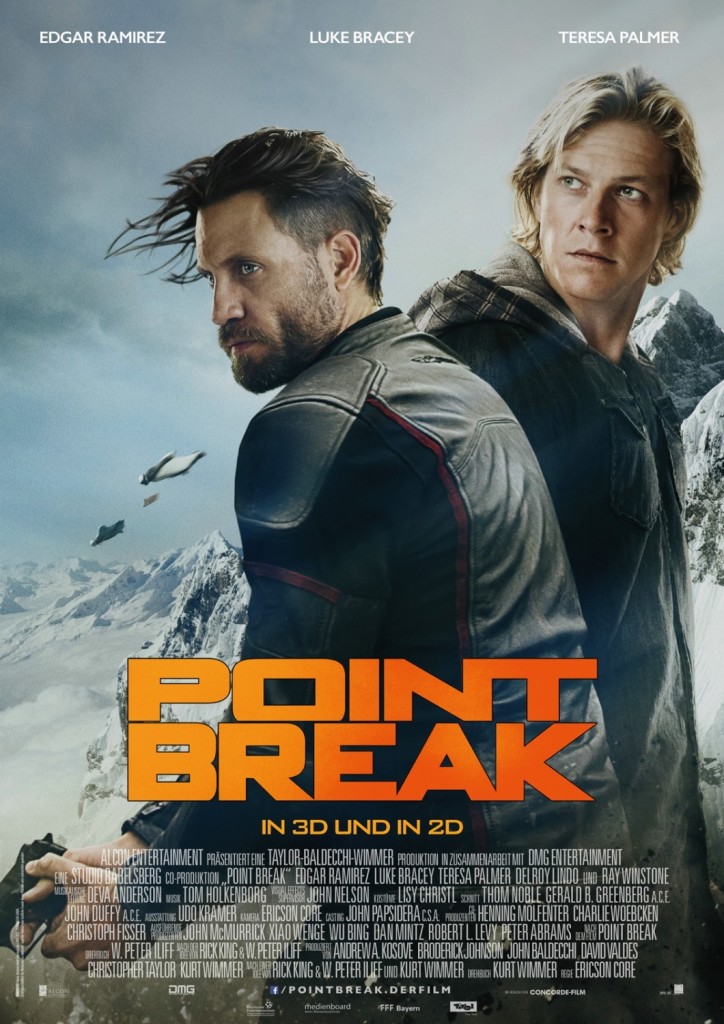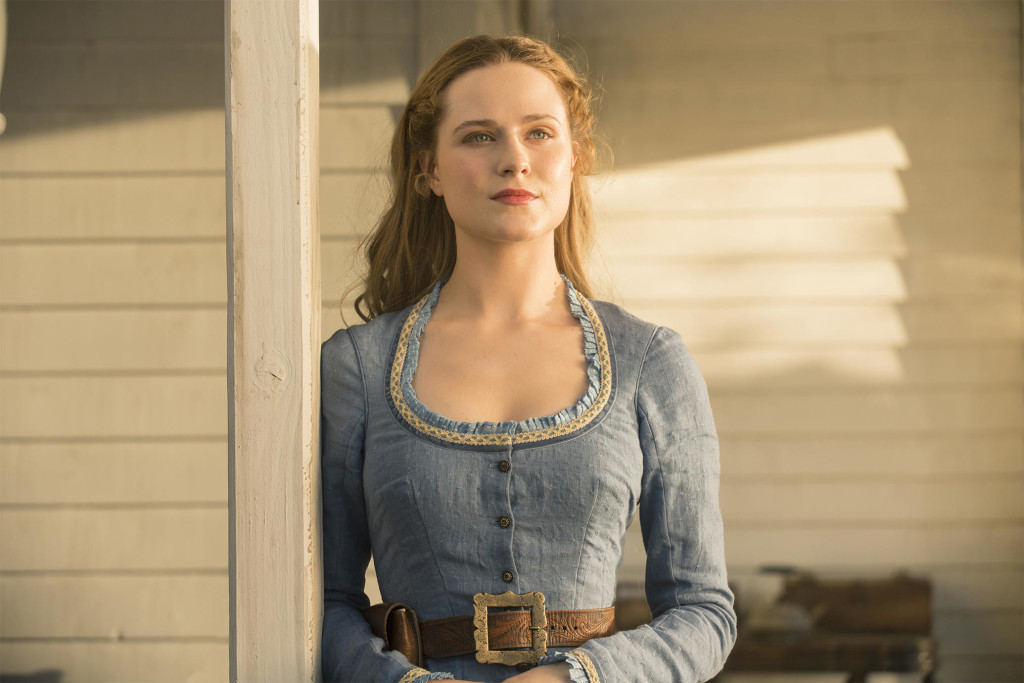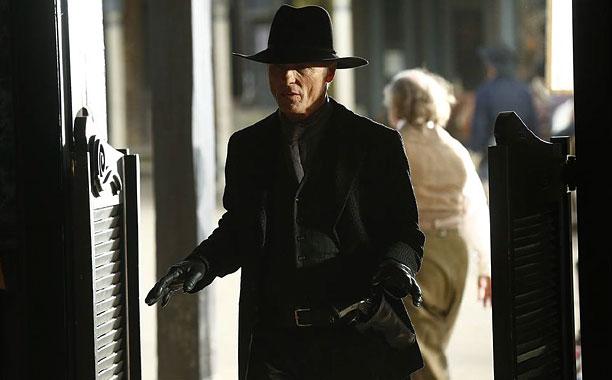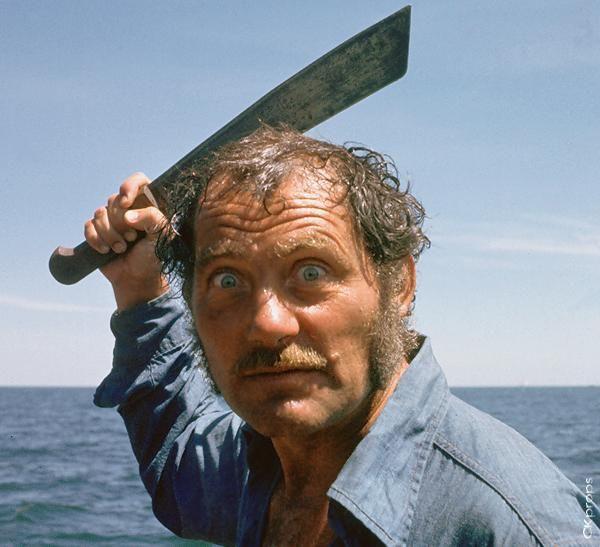This weekend I was discussing a horror script with an aspiring screenwriter. He was working on the “teaser” (his opening scene) which consisted of a girl running through the forest as a shadowy figure chased her. As you know, this is a common scene in movies, and he was trying to come up with a unique way to execute the scene. We went through a handful of options, but in the end, realized that they had all been done before.
Later, as I busted out some fresh Diet Coke and a bag of almonds, it occurred to me that we live in a world where there are no original ideas anymore. There used to be a time when a writer could stumble upon a bizarre story in a library or the back of a newspaper and he’d have ZERO competition for that story since nobody else had come across it.
Nowadays, we have a living breathing tome of information that every single person in the world has access to. If a weird story appears, it doesn’t get buried on some back page of a newspaper. It becomes “viral” and everyone knows about it within 24 hours.
Take the “Zola the Stripper” story that became famous on Twitter last year which James Franco is now making. In the past, that story would’ve been conveyed to a couple of close friends then never heard about again. That doesn’t happen anymore. Every great story rises to the top of the internet, which means every writer has access to it.
In addition to this, you have so many more mediums to tell these stories. Besides the hundreds of news sites out there and the thousand or so video games that are released each year, we have 400 TV shows broadcasting ideas 24 hours a day, 7 days a week. So it isn’t just that ideas are easier to find, it’s that there are more people using them. That’s why so many TV shows feel similar. They’re being written by 5000 eyeballs all reading and looking at the same stuff every day.
I remember when the fated show, My So Called Life, came out. There was a scene in an early episode where a high school character had sex with a guy in a car, and another character secretly video-taped it. At the time, it was a really original plot point. You hadn’t seen it used in any other show or movie beforehand. It was choices like that that made the show a critic’s favorite.
Now I watch this show called “Casual” on Hulu. It’s a good show. The premise is that characters of all ages try and date in this new world where the majority of sexual relationships are casual. The show started off with some original stuff that had a recently-divorced 40 year old mother trying to date off Tinder, and the trials and tribulations that arose from old school and new school dating colliding.
Now in their second season, they’re running out of ideas fast. One of the most recent storylines was something a 2016 version of My So Called Life might’ve used. Three high school friends decide to have a 3-way. Things don’t go well and we watch the bitter fallout afterwards. That might have been interesting…… if it was SEVEN YEARS AGO. Today it’s the third 3-way plotline I saw on television this week.
And don’t get me started on film. Screenplays have to meet such strict structural guidelines that it’s nearly impossible to do anything with them that people haven’t seen before. Watching films these days feels like watching your GPS app as it guides you to your lunch meeting. You’re notified of every upcoming plot beat well ahead of time (“Take a left after…Guy loses girl after an artificially constructed argument at end of second act”), and the destination is never in doubt.
Reading yesterday’s script, Glass, confirmed this to the nth degree. The most predictable jewel heist script imaginable which hit every story beat that every previous jewel heist script had hit before, still sold. And I’m starting to think it’s because producers have given up. They WANT originality. But they understand it’s rarer than a 50 carat diamond. So they settle for good marketable premises where the writer doesn’t screw up the execution.
All this got me wondering: Is originality dead? Should we just throw in the towel and embrace it? Or is there a way to still be original? Because if you had access to that formula, you’d be a valuable commodity in Hollywood, one of the few people who could give audiences something they’ve never seen before.
The good news is that there is a formula. The bad news is: it requires a lot of hard work. Let’s go over the three main elements of the originality formula below.
Unoriginal premises beget unoriginal scripts – This is a complicated way of saying, an original premise does the work for you. If you can come up with an original concept, you’ll find that a lot of the situations in your script are likely to be original.
Take yesterday’s script, Glass. It’s a basic jewel heist gang story. So what kind of scenes are you likely to get in that story? A lot of unoriginal situations, right? But if your concept is dream heists, where people are going into people’s heads and stealing thoughts from them (Inception), you’re going to get a ton of original scenes just by the fact that nobody’s ever explored that premise before.
The majority of unoriginality is born out of laziness – The less you try, the less original you will be. If I told you to come up with with a climax IN ONE MINUTE where my hero has a gun trained on my villain, who’s holding his wife hostage, what are the chances you’d come up with an original scene? Pretty low, right? What if I give you an entire week though? I’m guessing you’d bring me something a little more fleshed out and unique.
So TIME is part of the equation.
But it’s not the only part. TIME is nothing without EFFORT.
There are some writers I could give one minute or one week to and they’d still come back with the same boring hostage-climax scene. Why? Because they don’t want to work hard. They don’t want to explore a dozen different scene options or question whether this scene is a good idea in the first place or if the showdown should take place in another more interesting location or if our hero should be incapcitated in a way that we’ve never seen before in this scene. And when you’re not willing to make that effort, it’s the difference between writing a 4000 theater release type film and a straight-to-Itunes rental.
Characters are where the originality rubber meets the road – The real secret sauce though, guys? The thing that’s going to give you the best shot at blowing readers away with your originality? Characters. Both who they are individually and who they are with one another (their relationships).
How you mix and match a character’s past and their flaws and their eccentricities and their inner struggles – and how you combine that with another character who’s dealing with his or her own set of variables – and then how you use the unique environment or the situation surrounding them to add pressure points to that relationship? That’s where you find moments that nobody’s found before. It’s like cooking. The more exotic the ingredients, the more exotic the meal.
A good example of this is Silver Linings Playbook. Your main character has bipolar disorder. Your female lead has depression due to losing her husband. And these two characters are bound by the oddest of factors (one’s trying to get his wife back, the other wants to win a dance competition). I mean how are ANY of these scenes going to play out like scenes from previous romantic comedies or dramas? They’re not. Because the writer worked their butt off to create unique characters and then paired them up in a unique way.
Contrast that with those formulaic rom-coms based around holidays they seem to make every year now (Mother’s Day! New Year’s! St. Paddy’s Day!) and you can see why one is able to produce something exciting and different and the other is forgotten within seconds.
In addition to this, I should remind you that originality has degrees. Whereas you can go batshit crazy original in a script like Swiss Army Man, you won’t have as much leeway in something like Godzilla. Still, you should always be pushing yourself no matter what the limitations of the genre or audience is. Pixar plays to the broadest audience of all, and their scripts are as original as anything out there.
As we bring this to a close, a reminder that originality is just one element of writing. You still have to write a good story! Cameron Crowe’s “Aloha,” a rom-com set in Hawaii about a satellite launch, was wholly original. But it was unapologetically awful due to the fact that the story sucked. So don’t book your trip to Vegas the second you win your “original concept of the year” award. You still have to buckle down and do the hard work. Create an engaging story with more original choices than not.
SCRIPTSHADOW THURSDAY CHALLENGE!!! – Write the most ORIGINAL VERSION of a “woman gets chased in the woods by a scary figure” scene in the comments section. Upvote your favorite scene and we’ll give that writer a shoutout at the end of the day.
Genre: Sci-fi/Western
Premise: In the future, people pay lots of money to visit a “theme park” that looks and acts like a real Old West town.
About: HBO is getting nervous. The cable channel that used to be satisfied solely with awards, got a taste of the high life when their behemoth, Game of Thrones, became a cash cow. Now, with Game of Thrones getting long in the tooth, HBO is looking for another superstar moneymaker to replace it. That task has been bestowed upon Westworld. HBO is hoping so badly for the sci-fi Western to replace the dwarves and dragons epic, that they paused production for four months so that they could retool the show and get it right. The show is being run by Jonathan Nolan, who’s co-written many of his brother’s (Christopher Nolan) scripts. He most recently created and ran the show, Person of Interest.
I’ve always loved the idea of mixing genres that don’t belong together. Sci-fi and Western, in particular, create an intriguing hybrid that practically begs you to check it out. And when I heard they were turning this 1973 film into a TV show on HBO, I thought, “This is going to be a winner.” I knew HBO had the resources to do this motherfucker justice. It wasn’t going to be one of those muddled sci-fi messes you got on SyFy or MTV.
And then I heard some terrible news.
Jonathan Nolan would be writing and running the show.
Siiiiiiiiiiiiiiigh.
I’m one of those guys who hates when people say, “The only reason so-and-so is in the business is because his dad/brother/wife/uncle is famous.” My argument is that even in the ranks of the nepotists, there are thousands upon thousands of actors/writers/directors trying to move up who don’t get anywhere because they simply aren’t good enough. I’ll even defend Max Landis, whose father being in the business actually, I believe, hurt him.
But Jonathan Nolan is someone who’s clearly ridden on the coattails of his way more talented brother, racking up “co-writing” credits on a lot of Chris’s bigger gigs, gaining enough “experience tokens” for the town to give him a shot at his own projects.
But I think we saw what happens when Jonathan Nolan is given sole writing duties on a big project when he penned Interstellar (his brother got co-writing credit but this is the first movie they made that Jonathan shepherded). That movie was a fucking mess. And the main reason it was a mess was because the writing was so shoddy. It had weird leaps in logic, huge plot holes, a bevy of odd choices, and an ending that was a personal assault on the collective intelligence of planet earth.
Ever since then, I don’t trust anything this guy is attached to. So it didn’t surprise me when HBO closed shop on Westworld’s production for a third of the year. I figured it was around that point that they realized Nolan had no idea what he was doing and they needed to help him rewrite all the episodes.
Well, we finally got the beginning of that retooling on Sunday, when Westworld premiered. The show follows a young woman named Dolores who lives in a small town in the Old West. We meet Dolores as she goes about her day, while concurrently listening to her in voice over as she’s interrogated by a man in a glass room.
You see, Dolores is a robot. Her job is to operate inside of this “Old West” town while real-life tourists come and enjoy what it must have been like to live in the Old West. Oh, there’s a catch. Dolores and all the other humanoid robots don’t know they’re robots. They think they’re real people, despite being de and re programmed in their steel and glass rooms every week, their memories wiped so they’ll be ready for the next crop of newcomers.
The pilot seems to embody the confusion that caused the production to shut down in the first place. I have no idea what the story is in this pilot. It jumps between the Old West and the “control room,” where the experience-runners attempt to keep everything running smoothly.
It also includes: a man in black (Ed Harris) who keeps showing up in strange places and can’t be killed. Other bad guy robots who rape and kill women. Dolores’s father, who’s also a robot, seems to be malfunctioning. We also get an out-of-town gang who seems to have no connection to the story show up and rob a bank. Oh, and finally, we occasionally drop in on Dr. Robert Ford, the creator of this place, who lives in an underground abandoned mall.
Confused? I know I was.
When the pilot ended, I asked myself, “Why would I want to watch another episode of this?” That’s the only question you need to have answered when you write a pilot. Once someone reads your pilot, they need to be DESPERATE to read the next episode. That’s usually accomplished by offering a series of unanswered questions. Which Westworld does have.
The problem? None of them are very intriguing.
Look at The Matrix. When you watched that first act, there was nothing you wanted more than to figure out WHAT THE FUCKING MATRIX WAS! Or Lost. Even you Lost haters. After the pilot, you wanted to find out why there were polar bears on the island, why there were monsters on that island. Maybe you hated the show as it went on. But it made you want to watch that second episode, I know that.
This doesn’t even accomplish that. Not through the writing at least. You may want to tune in because the production value is as good as a feature film, if not better. But is there any story reason why you want to keep watching this show? Not that I can see.
I guess the engine behind the story is: Will the robots realize they’re not real? And if so, what will they do about it? And I’m not sure that’s exciting enough for me.
And here’s where you can identify why Nolan is a weak writer. He gives away the biggest mystery – that these are robots living in the Old West – in the very first second of the script. Instead of giving us 1-3 episodes of living in this Old West town and showing us a bunch of strange things that make no sense, before revealing that some of the residents are robots and everything is being manipulated from a control room, he tells right off the bat.
Compare that to Wayward Pines, which was built on a similar premise. Except they drew the mystery of the town out as much as possible before telling us what was going on. It’s choices like this that make Nolan look like he’s in over his head.
And there are little things you pick up on that clue you in that you’re not dealing with a real screenwriter. Like the fact that Dolores is our main character, yet I have no fucking clue what she does for a living. We only ever seen her coming out of her father’s house. So is she a professional house exiter?
Good screenwriters know that details like this need to be conveyed right away. Bad or inexperienced screenwriters don’t even consider it because they don’t believe it’s important. You don’t think it’s important we know what your main character does? That’s Screenwriting 101 right there.
Westworld takes itself too seriously and feels like it was conceived by someone who doesn’t have a plan. If the first episode is this disjointed and unclear, what hope is there that future episodes are going to pull things together? A TV show always gets sloppier as it goes on. The pilot is supposed to be the one statue of solidarity. And this one’s already cracking.
I’m sure this show will have its fans due to the out-of-this-world production budget, which allows Westworld to look as slick as a Christopher Nolan film. But in the end, all the audience cares about is the story and the characters. And Westworld, at least judging by the pilot, doesn’t deliver on either.
[ ] What the hell did I just read?
[x] wasn’t for me
[ ] worth the read
[ ] impressive
[ ] genius
What I learned: Is the main unanswered question you derived for your series COMPELLING ENOUGH to make viewers want to tune in next week? Really think about that question. Because if there’s no compelling question, there are no viewers coming back. Westworld could’ve kept the robots and the control room a secret, and used the first few episodes to introduce a series of characters acting strange. That question would’ve propelled us to keep tuning in. Instead, they answered that question immediately and shifted the series’ primary question to, “Will the robots realize they’re robots, and when that happens, then what?” Uhhhh, I don’t really care about the answer to that question, so I’m not compelled to keep watching.
Why this is important: With television, you want to keep eyeballs on your show long enough so that the audience gets hooked on your characters. You can’t always do that in the first episode, since you’re crafting a story with a lot of setup. So you need to derive ways to keep the audience around for 4-5 episodes where they’ve been around your characters long enough that they’re now hooked on them. Without a strong unanswered question driving those early episodes, you’ll never get your audience to that point.
Genre: Drama/Thriller
Premise: Based on the famous monologue from one of the most popular movie characters of all time, The Fisherman tells us what really happened to the “Jaws” character, Quint, that terrible week in the ocean at the end of World War 2.
About: People have been obsessed with the story of the USS Indianapolis for 30 years now. At one point, Steven Spielberg himself was going to film the real-life story of the fated battleship. But the fickle director eventually moved on to other projects. The Fisherman is written by Will Dunn and finished fairly high on last year’s Black List. I reviewed one of Dunn’s scripts before – Ion – which was, at one point, going to star Channing Tatum. I didn’t like it. Let’s hope today’s dorsal fin fares better.
Writer: Will Dunn
Details: 109 pages (10.22.15 draft)
The Fisherman ranked high on last year’s Black List, so let me tell you why it’s taken me a year to review it. The script follows a practice I’m not fond of, which is taking characters from previously established works and writing a movie about them, usually a backstory to tell us how they got to be who they are.
What’s your issue with this, Curmudgeon Carson? I’m glad you asked that question, disembodied voice of my reading audience. The way I see it, Jaws has been made. As has Star Wars, Peter Pan, Romeo and Juliet, The Godfather. Why can’t we let the perfection of those stories be? Why do we have to waste an idea on the backstory of one of them when we could – wait for it – WRITE AN ORIGINAL GREAT MOVIE OURSELVES!?
That’s my biggest issue. Hollywood barely gives us anything new anymore. And it’s not their fault. They have to answer to people in boardrooms who, when an original idea tanks, ask, “Why the hell did you make a movie about something nobody’s heard of when you could’ve adapted a bestselling book or commissioned a sequel to Pirates of the Caribbean?”
The amateur screenwriter IS THE LAST PERSON who can still write original ideas. Once you become professional, you’ll be writing episode 7 of the second season of The Exorcist on Fox or a spin-off film of Pinocchio’s character from Shrek. So as long as you still can, why not write something new?
Cause guess what? If you do that and it WORKS? Not only will it get made, but you’ll be heralded as one of the few people in the industry who writes original ideas. And that’s pretty fucking awesome.
There’s a flip side to this argument. Everyone in this business came to it because they loved movies. And Jaws is one of the main movies that made people want to write and direct films. So I get how exciting it is to write one of those characters yourself. But that doesn’t mean I agree with the idea.
The Fisherman follows four storylines. The first is Quint, a few months after the war, in 1946, out on his lobster boat. His boat is rendered inoperable after a great white shark attacks it, and he must defeat the shark or die.
The second is Quint in 1945, on leave from the Navy, where he meets a lovely woman named Laura Foster, and falls in love with her.
The third is later in 1945, when Quint is shipped off to the war, only for his ship, the USS Indianapolis, to get blown out of the water by Japanese subs, and for the survivors to slowly roast in the ocean waters for a week while hundreds of sharks eat them up.
And the fourth is Quint in 1946, right after he came back from that tragedy but before he goes out on his lobster boat. It’s here where he questions whether he’s good enough to be with Laura, and where his battle with the bottle begins.
Will Dunn makes a couple of smart choices with this script. The first is he wraps this screenplay around a love story. That’s a bit of an unexpected choice when it comes to a character like Quint, who’s supposed to be the drunken rowdy badass who you’d think wouldn’t trouble himself with things like “love.”
But it’s a nice reminder that choices tend to turn out well when you go against type. If we only focused on the macho-ness of Quint in this story, it would’ve felt obvious. And remember, guys, if your choices are obvious, your screenplay is boring. Anybody can make obvious choices. Screenwriters make bold and unexpected choices. Good screenwriters, at least.
The other thing Dunn does here is he institutes a multi-storyline approach. Multiple storylines, particularly ones where you’re jumping back and forth in time, can be tricky. They always make perfect sense to the writer, since he’s got the timeline laid out in his head. But it’s never as clear on the page as you think it is.
So you really have to hold the reader’s hand when you do this. You have to make extra sure that you’re being CLEAR on where we are. And the more timelines you have, the harder you have to work at this. Four is a lot.
But Dunn does a good job. Once the timelines are established, I was able to keep up, with the minor exception being the timeline between the USS Indianapolis and Quint alone on the boat.
The nice thing about the multi-storyline approach in this case is that it keeps us off-balance on our way to what we all know is coming – the USS Indianapolis sinking. Dunn knows that that’s his money sequence. So he’s gotta make sure you’re paying attention beforehand and not just speeding through so you can get to that part.
If this were told in a predictable linear manner, readers might have responded like, “Okay, we get it. Quint has a girlfriend. I WANT TO SEE SHARKS EAT BURNED SAILORS NOW!!” and start skimming. I never wanted to do that though, which is a good sign.
But the real reason The Fisherman succeeds is that it does something I’ve been talking to a director friend about a lot lately. It takes a big concept and it approaches it from a CHARACTER POINT-OF-VIEW.
Pay attention to that guys, cause it’s the secret ingredient to writing good scripts. Everything in this script is character driven. When Quint’s on that boat by himself, he’s battling the ghosts of that war tragedy, his place in it, and if he’ll ever be the same person again.
When he’s not battling that tragedy, he’s battling the fact that he can no longer be with the love of his life. Even before the Indianapolis crashes, Dunn introduces us to Quint’s best mates, two guys whose fates will be tied to the sinking of that ship, and how their fates affect Quint to this day
My favorite scene in the script is the last scene involving one of these friends which I didn’t see coming at all. Surprisingly, I even found myself tearing up. So obviously, Dunn was doing something right.
Despite this, this world isn’t my world. I’m not a huge shark guy (even though I recognize their marketing value to a concept) and I’ve always seen Jaws as a solid flick but nothing like the classic everyone claims it is. When you combine this with the fact that we’re going backwards into old ideas instead of building new ones, I ended up throwing my “impressive” back in the water and settling for the “worth the read” I caught.
With that said, I expect Jaws fanatics to LOVE THIS. Let me know what you think ya Benchley cheerleaders.
[ ] What the hell did I just read?
[ ] wasn’t for me
[x] worth the read
[ ] impressive
[ ] genius
What I learned: Note the date of this draft (10.22.15). If you’re trying to make the Black List, late October, and the majority of November, is a GREAT time to send your script out to the town. This way, Black List voters voting on December 8th are highly likely to remember you above scripts sent out earlier in the year.
Bonus Question: Which actor would play Quint in a modern-day movie about him?
THE WINNER OF WEEK 4 HAS BEEN LISTED BELOW
The Scriptshadow Tournament pits 40 amateur screenplays against each other that you, the readers of the site, will vote on. Ultimately, YOU will decide the winner. Today we have the fourth group of entries. You can see who won Week One here, who won Week Two here and who won last week here. Read as much as you can from each of the entries and vote for the week’s winner in the comments section. Although it’s not required, your vote will carry more weight if you explain why you chose the script (doesn’t have to be elaborate, just has to make sense). I say “carry more weight” because a vote for a script without any explanation from an unknown voter may be seen as fake and not count towards the tally. I will announce the winner of this week here, in this post, on Sunday, 10pm Pacific time. That script will then go into the quarterfinals. Good luck to this week’s contestants!
Title: Years of a Clown
Writer: Michael Mchale-Boyle
Genre: Fantasy/Adventure/Drama
Logline: A precocious young boy, struggling through his parents’ divorce, finds comfort in an unlikely friendship with an elderly Clown who recounts the story of his amazing life.
Title: Cartel
Writer: Ben Stoker
Genre: Action
Logline: A vengeful DEA agent plots an unsanctioned mission to kidnap Mexico’s most-wanted drug lord, but soon finds himself marooned in cartel land with his hostage and an army of hitmen in pursuit.
Title: 21 Days in the Amazon
Writer: Ben Koch
Genre: Found Footage Horror
Logline: When the cast and crew of the reality show Bared and Scared film an episode in the Amazon, surviving the deadly jungle proves less frightening than surviving an unhinged contestant.
Title: Raised By Wolves
Writer: Paul Clarke
Genre: Action/Thriller
Logline: After being attacked and accused of murder, a spoiled naïve teenage girl discovers her sheltered little world is a lie and must escape it to discover the truth about her work and her father.
Title: Hellfire Alley
Writer: Kenneth Kleemann
Genre: Western/True Story
Logline: The story of the real Wild Bunch that inspired the classic film.
WINNER OF WEEK 4: “RAISED BY WOLVES” by Paul Clarke. Congrats, Paul! I knew this week was going to be close. You had two commenting favorites in Kenneth and Paul vying for votes. When you throw in a compelling concept like Years of a Clown, I had a feeling it was going to come down to the last day. Then 21 Days came out of nowhere and made things even more interesting. Can’t promise anything but those who were close, cross your fingers. You may get a wild-card slot.
Here are 10 movies I walked into and came out of a more knowledgeable screenwriter.
Matrix: Reloaded – I’ll never forget how excited I was going in to this movie, and how devastated I was walking out of it. Matrix: Reloaded taught me one of the most valuable screenwriting lessons there is. You can’t rush a script. Good scripts need time to breathe.
Deadpool – Deadpool reminded me that one of the best ways to write a hit movie is to locate the end of a trend and then write the opposite. A series of superhero movies that take themselves too seriously? Write a superhero movie that makes fun of itself. A bunch of serious horror movies are dominating the market? Write one that’s not so serious. And make no mistake. When all these Deadpool clones take over the airwaves, the first guy who writes a comic book movie that takes itself seriously again will have a mega-hit on his hands.
American Sniper – I had as much confidence in American Sniper doing killer box office as I did Chris Kyle making an appearance at the premiere. But American Sniper (and more recently, Sully) taught me the value of a real-life hero. America fucking loves their heroes. Find a real life hero in America’s history (don’t bother trying to find a current one – Hollywood’s got’em all locked up) and tell their story. If you do an even halfway decent job, you’ll get a sale. We just saw this with the spec sale, Mayday 109, about a little known heroic deed from JFK. MURICA!
Forest Gump – I still watch Forest Gump today and marvel at how a movie with no structure and a main character who succeeds through the entire film works so well. Wanna know its secret? The disadvantaged protagonist who keeps fighting no matter what is a bulletproof hero. Let me say that again. A disadvantaged hero who never gives up is IMPOSSIBLE TO DISLIKE. An audience will always root for that character. And by “disadvantaged,” I don’t mean retarded. Just that life’s cards didn’t fall in his favor.
Elysium – Remember how excited everybody was for Neill Blomkamp’s follow-up to District 9? Holy shit. I thought this was going to be the bee’s knees. Then I started hearing whispers: “The script’s thin.” I refused to believe them. Maybe they were looking at an early draft. Nope. Elysium was terrible, and it taught us what a half-baked idea looks like. Elysium’s mythology was barely explored. As a result, it felt like a mansion with only half its rooms furnished. Know every inch of your world, guys. It doesn’t all have to appear on the page. But as the writer, you need to know how it all connects.
The Phantom Menace – The Phantom Menace taught me one of the most valuable lessons I’ve ever learned. That just because you build your story around deep things, it doesn’t make your script deep. Lucas believed that because The Phantom Menace was covering politics, it would somehow make this Star Wars adventure more intellectual and thoughtful. The only thoughts anyone had, however, occurred during their REM cycle once the second act rolled around. The Phantom Menace also reminded us how valuable urgency is to a story. If you look at the four best Star Wars movies (4, 5, 6, 7) they all have urgency. You look at the worst 3 (1, 2, 3), they have no urgency. And no, Episode 3 is not better than 4-7. Stop promoting that overblown pointless film with one of the worst climaxes (“I HAVE THE HIGH GROUND, ANAKIN!”) in sequel history.
Hancock – Hancock had one of the best setups for a superhero movie ever. A drunk superhero? Talk about a conceptual goldmine. The finished product, however, was a disaster, and it taught us a valuable lesson: AVOID OVERDEVELOPING AN IDEA. A lot of times, we’re with our scripts for so long, we become numb to them, and feel like we need to add bells and whistles to keep them exciting, instead of staying true to what was great about the idea in the first place. Hancock felt that pressure and added the ridiculous twist where a local housewife had the same mythological powers as Hancock did, and the movie never recovered after that. When you have a good idea, trust it. Don’t overdevelop it with a bunch of stupid add-ons just because you’re bored.
Cast Away – Cast Away was one of the riskiest movies of the decade. Sure it had Tom Hanks, but he was all by himself! How do you keep that interesting for two hours? Cast Away taught me the power of the mini-goal. The mini-goal is the tool that keeps your character active for 10 minute chunks at a time. Tom Hanks must make fire to survive. There’s a ten minute chunk. Tom Hanks must learn how to fish. There’s a ten minute chunk. Tom Hanks must figure out how to utilize all the Fed Ex packages. That’s a chunk. Mini-goals keep the movie moving 10 minutes at a time. If Tom Hanks doesn’t have anything he has to do RIGHT NOW, that narrative stops and we get bored.
World War Z – World War Z famously filmed a giant war climax between humans and zombies that wasn’t working. They had to stop production, bring a new writer in, and write a new ending. That ending had humans avoiding zombies in a lab-like maze while they looked for a cure. It was a solid sequence that ended up saving the film. The lesson? When you’re writing a big movie, sometimes the answers aren’t big. Sometimes they’re intimate. So make sure you consider both.
Pearl Harbor – Pearl Harbor was trying to be the next Titanic. It succeeded. If you mean it quickly sunk to the bottom of the box office. Pearl Harbor taught us that you should never prioritize an idea over characters. The movie was an obvious excuse to film a set-piece (the Pearl Harbor bombing) with the characters being an afterthought. The reason Titanic was so successful was because James Cameron wanted to explore the depths of his two main characters first, and the depths of the Titanic second. Nobody knows that about Cameron – how much he values character. But it’s precisely why he’s the king of the box office.
Mini-Lessons – The Dark Knight taught me the value of grounding extraordinary characters. The Hangover taught me the importance of finding new ways to explore stale ideas. The Sixth Sense taught me that an audience will be patient as long as your heroes’ objective is compelling enough. Silver Linings Playbook and 500 Days of Summer taught me that the traditional romantic comedy is dead, and that you need some quirky take on the genre to get Hollywood interested. And Ghostbusters taught me that audiences aren’t stupid. If they feel that you’re pushing something other than entertainment (in this case – a social agenda), they won’t show up.








